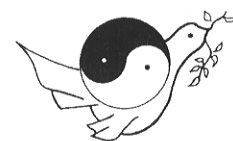|
|
|

I (as the chairperson), with the Institute for Korean Unification (IKU), Pusan National University ( https://iku.pusan.ac.kr/iku/54496/subview.do ) am hosting an international conference on the United Nations and Korean War (1950-1953): Politics, War and Peace, 21-24 October 2021. We would like to invite you if you are interested, or your research is relevant to the Korean War.
After World War II, the geopolitical tension of the Korean peninsula became critical. The beginning of the Cold War was eventually visualised through the military conflict of the Korean War (1950-1953). The United Nations (UN) dispatched soldiers from sixteen countries as well as medical support from six nations. This conference is to explore the involvement of the United Nations for ‘the Forgotten War.’ The theme can be analysed in a multidisciplinary approach of history, politics, anthropology, sociology, war strategy, human movement, medicine, refugee, POWs, Busan studies, unification policy, education, and human rights.
(The conference will be an onsite conference even though the condition could be changed to a zoom conference.)
Proposed streams:
- Policy of the UN for Korean War: The involvement of the United Nations (UN) to the Korean War was significant for South Korea (positively) and North Korea (negatively). How was the decision made so early? Who was involved in the process? How was the policy implemented internationally?
- Human Movements, POWs and Refugees: The war directly impacted the relocation of the local people (6.3 million). The war also caused many POWs and refugees. How was the geographical landscape of the human movements? What was the situation of refugees? Were the POWs treated fairly?
- War Strategy and Battles: The various war strategies were applied at the battlers of the Korean War between the army, navy (the marine corps) and air force of China, Russia, UN, North and South Koreas. How was the strategy changed? What was the turning point for each other? Which battles were significant? What about the condition of retrogression?
- Narratives of Victims and Casualties (Soldiers and families): The war generated many victims (death and wound) which affected the emotional and mental condition of family members. What was the story of individual involvement? How do they remember the East Asian war? What is the post-war life of soldiers? Do they have any story in relation to Korean people?
- Human Rights and Welfare (medicine, orphans, and education): Under the military situation of the Korea war, there were the various activities of international, public and NGO organisations in the sphere of human rights. How was the medical service provided? How were orphans managed? Was any activity of education continued?
- Theory and Method in Unification and Peace Process: Since the Korean War has been 70 years and remained as an unfinished war, what kind of theory or method can be adopted for the development of Korean Unification? How can the peace process take a place for the future of both Koreas?
Proposals:
Please send your abstract or panel proposals to David W. Kim (davidwj_kim@yahoo.co.uk) including the following information:
- Paper title
- Nominated stream
- Name and affiliation
- Contact details (email)
- Abstract of 150-200 words
- Biography of 80 words highlighting teaching and research interests and publications (3-4 title and year only).
Proposals for panels of 3 or 4 papers must include the above information for all papers and a brief description of the panel itself of 100 words.
Key dates:
Proposal deadline: 21 May 2021
Notification: 30 June 2021
Registrations open: 14 July 2021
Registrations close: 10 August 2021
Conference: 22-24 October 2021
Registration fees:
· Full-time scholar: $250
· Student/ part-time and unwaged scholar/ audience: $200
· Local Korean scholar: $200
Registration includes participation in all conference sessions, lunch, morning tea and afternoon tea on each day, conference dinner, registration pack, and post-conference tour. Publisher registration includes, in addition, a display desk, an opportunity to address conference delegates, and your logo on the conference program front page.
There will be limited bursary for some accepted doctoral candidates and early career researchers ($100-$300 each) as well as award for two best papers ($500 each). The bursary and award will be given away after conference.
In addition, the selected papers (in a book volume) will be published in UK or Europe.
Sincerely,
Dr David W. Kim,
Fellow of the Royal Asiatic Society (FRAS),
Editor for Book Series in Modern East Asian Religion and Culture (Cambridge Scholars Publishing, UK),
School of History,
Australian National University,
Canberra, ACT, 2601, Australia.
Tel : + 61 (0)2 6125 2718

|

